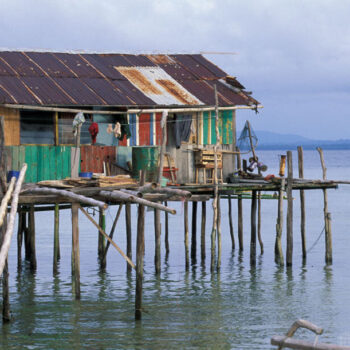Shifting the global economy onto a 2°C trajectory implies a rapid shift of existing investment patterns and far reaching transformation in technology, infrastructure and practises. Such a paradigm shift will also involve adoption of a range of new financing and business models. This represents a challenge for developing countries which will need to identify and put in place measures for mobilising different forms of public and private finance from domestic and international sources.
Chile, Colombia and Peru represent some of the developing countries that are taking the lead to address this challenge and are looking to develop a deeper understanding on the financing measures needed to deliver desired outcomes. E3G is working jointly with representatives of these Governments to scope out what is involved in financing their low emissions and climate resilient development plans. “National Financing Pathways” (NFP) have emerged as a concept that represents the evolving nature of a strategic approach required to effectively manage the interdependencies between public, private and international sources of finance for greatest impact and scaled investment for implementation of low emissions and climate resilient development over time.
Based on discussions with representatives in Chile, Colombia and Peru early findings are that a range of issues will influence the shape and pace of a NFP and that countries will need to take an approach that is appropriate to country specific priorities, contexts and institutional capacity, including the structure and maturity of the local financial sector. However, some common challenges are also being identified and the relevance of various frameworks and tools for assisting countries to develop their NFP are being considered.
Another finding is that a NFP can help identify and prioritise actions over the short, medium and longer term to deliver a sustainable financing pathway for implementing LECR objectives over future decades. Short term actions include establishing institutional arrangements that actively engage Ministries of Finance and Planning, and strengthen working relationships with Environment and Sector Ministries. In the medium term this may involve development of pilot projects for financing, for example through Nationally Appropriate Mitigation Actions (NAMAs), to help demonstrate the feasibility of transformational investments that can be scaled-up through national budget processes. Longer-term activities will focus on ensuring capital is available, from institutional investors and other long-term sources of finance, for delivering a low emissions and resilient paradigm of development.
Engaging the private sector on policy and investment objectives is a key activity required to underpin short, medium and long-term financing. A NFP can also help ensure project and sector specific approaches, including NAMAs, are contextualised within a sustained and inclusive financing strategy that evolves over time. In addition, a NFP can provide a bridge between nationally determined and country led approaches on finance with the range of international financing initiatives and sources of climate finance.
Within each of the partner countries E3G is working with national “champions” that are actively working towards financing the implementation of their respective plans for low emissions and resilient development. E3G is collaborating with these champions to identify relevant factors that will determine their approach towards a NFP and concrete next steps towards this. These are: Fernando Farías, head of the Climate Change office in Chile’s Ministry of Environment; Luis Gonzáles in Chile’s Ministry of Finance; Silvia Calderon in Colombia’s Environmental Development Unit at National Planning Department; Rodrigo Suárez Castaño, Head of the Climate Change Direction in Colombia’s Minister of Environment; along with a Colombian national Andrea Guerrero from UNDP Colombia; Javier Roca, at the General direction of International Economy, competence and productivity affairs in the Peruvian Ministry of Economy and Finance; Eduardo Durand López Hurtado, General director of climate change, desertification and hydrological resources at the Peruvian Ministry of environment; and Maria Paz, a co-chair of LEDS Global Platform who helps develop policies for the Peruvian government and is part of Peru’s Plan CC project.
A forthcoming E3G publication early 2014 will build upon these initial findings and present more in-depth analysis and elaboration of the NFP as a framework and some common lessons and tools that may be relevant for developing a NFP framework.


